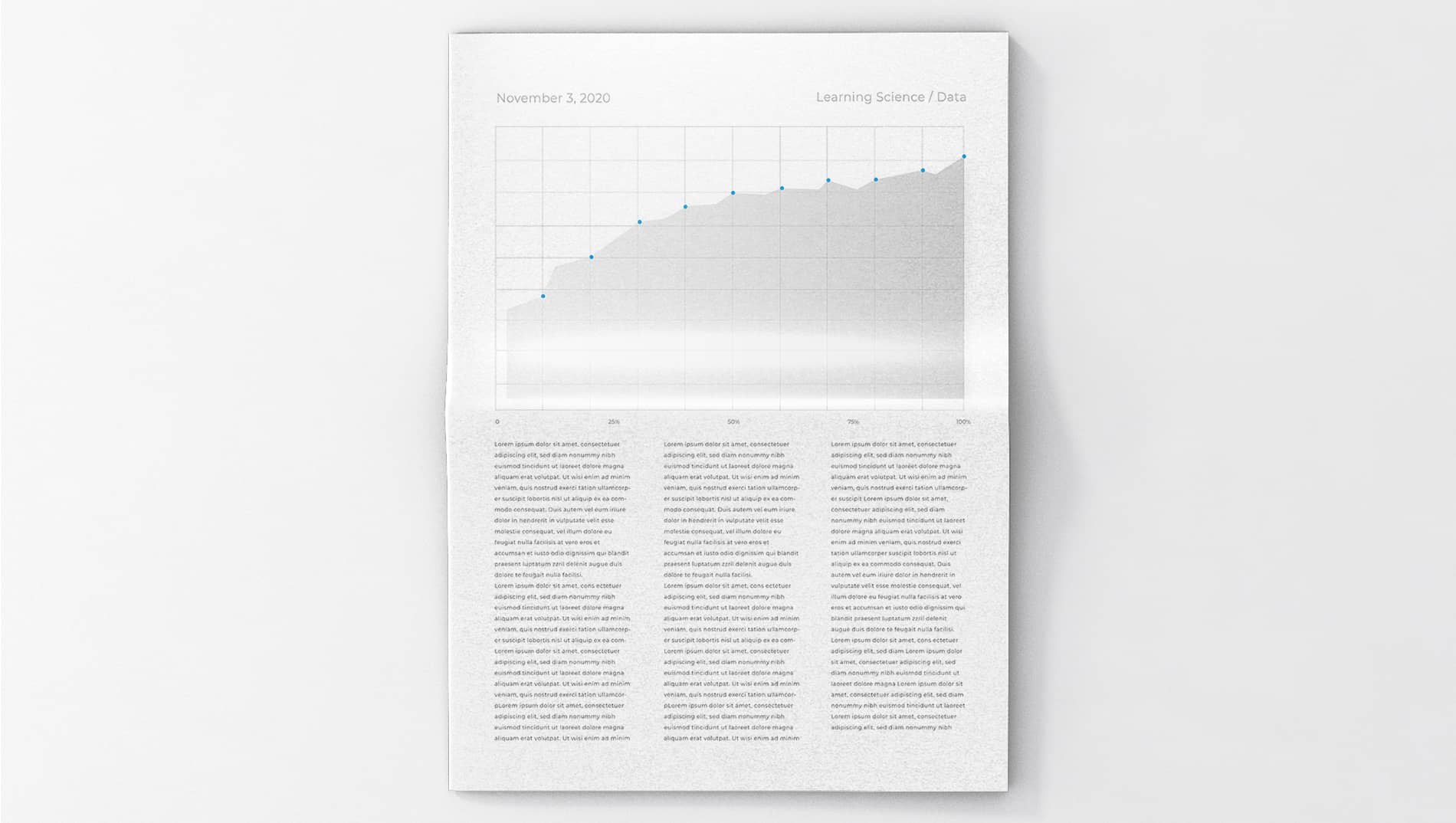Why Are Practice Tests a Good Way to Study? Testing is Vital While Studying for Medical Licensure Exams
Testing has become a controversial term. Teachers, parents, and students often lament over the amount of testing in k-12 education. At the university level, testing is often limited, with professors frequently perceiving tests as a waste of valuable teaching time. Testing is seen as the enemy of learning; it stresses students out and forces teachers to “teach to the test” with an emphasize on memorization rather than teaching critical thinking skills and creative problem-solving. However taking practice tests are a good way to study, according to multiple studies.
Testing, it turns out, is one of, if not the, most effective study strategies a student could engage in[i]. But why is testing so effective? Because it’s benefits are numerous and wide-ranging. Here, I’ll highlight two of the most important (for a summary of 10 benefits of testing, you can read a chapter by Roediger, Putnam, and Smith (2011)[ii]).
Two of the most important of benefits of testing summarized here are that 1) retrieval strengthens memories, which prevents them from being forgotten, and 2) retrieval makes it easier to update your knowledge to learn new information.
1. RETRIEVAL STRENGTHENS MEMORY & PREVENTS INFORMATION LOSS
Testing is often thought of as an end-product; as a way to measure what students know. In reality, taking a test, or engaging in what is called retrieval practice, actually changes what students know and prevents forgetting. Memory is not a static entity that can played back like a video; it is a dynamic process that can be modified and strengthened, or weakened and interfered with.
Retrieving an item from memory puts it into a labile state, where it is more likely to be modified. For still not completely understood reasons, this labile state reinforces your ability to retrieve that memory in the future. Studies have repeatedly shown that students who engage in retrieval practice recall a higher proportion of the to-be-learned material on later tests when compared to students who engage in just about any other study strategy, including rereading[iii], highlighting, and even other active study strategies such as making concept maps[iv].
The memorial benefits of testing have been seen in very controlled laboratory settings and in real-world classroom settings[v] with students young and old. Benefits have been seen with simple vocabulary all the way to complex medical information[vi].
2. RETRIEVAL MAKES IT EASY TO UPDATE KNOWLEDGE TO LEARN NEW INFORMATION
More than just preventing forgetting, testing also makes learning new information more effective. When students practice retrieval, they will of course sometimes get something wrong. When this happens, if students review feedback that explains the right answer, they will actually learn more from that feedback then if they had just read an explanation without first trying to retrieve[vii].
One explanation for why this occurs is because when students attempt to answer a question, they pull out from their memory what they know that’s related, even if they can’t remember or can’t figure out the right answer. Because retrieval makes knowledge labile, this related information is now more capable of being updated and combined with information from the feedback.
Learning is more effective when new information can be added to existing knowledge because it provides an organizational schema. For example, imagine someone describing what happened during the match of a sport you know nothing about. You would have a hard time remembering the details. However, if someone describes a match of your favorite sport with your favorite team, you’ll have a plethora of background information and an organizational schema in which to place those details, making it easier to remember.
The same is true for educationally-relevant information. When you relate new concepts to what you already know, it’s easier to learn and remember. Testing makes this combining more likely to happen.
These benefits, and many more, are why students should incorporate retrieval practice as they study. Just as musicians prepare for a concert by playing their instruments and athletes prepare for competition by playing their sport, the best way for students to prepare for tests is by practicing taking tests.
References:
[i] McDermott, K.B., Arnold, K.M., & Nelson, S.M. (2014). The testing effect. In T.J. Perfect & D.S. Lindsay (Eds.), The SAGE Handbook of Applied Memory (pp. 183-200). Los Angeles, CA: Sage.
[ii] Roediger, H.L., Putnam, A.L., & Smith, M.A. (2011). Ten benefits of testing and their applications to educational practice. In J. Mestre & B. Ross (Eds.), Psychology of learning and motivation: Cognition in education (pp. 1-36). Oxford, England: Elsevier.
[iii] Rowland, C.A. (2014). The effect of testing versus restudy on retention: A meta-analytic review of the testing effect. Psychological Bulletin, 140, 1432-1463.
[iv] Karpicke, J.D., & Blunt, J.R. (2011). Retrieval practice produces more learning than elaborative studying with concept mapping. Science, 331, 772-775.
[v] Roediger, H.L., Agarwal, P.K., McDaniel, M.A., & McDermott, K.B. (2011). Test-enhanced learning in the classroom: Long-term improvements from quizzing. Journal of Experimental Psychology: Applied, 17, 382-395.
[vi] Larsen, D.P., Butler, A.C., Roediger, H.L. (2009). Repeated testing improves long-term retention relative to repeated study: A randomised controlled trial. Medical Education, 43, 1174-1181.
[vii] Arnold, K.M., & McDermott, K.B. (2013). Test-potentiated learning: Distinguishing between direct and indirect effects of tests. Journal of Experimental Psychology: Learning, Memory, and Cognition, 39, 940-945.
[1] McDermott, K.B., Arnold, K.M., & Nelson, S.M. (2014). The testing effect. In T.J. Perfect & D.S. Lindsay (Eds.), The SAGE Handbook of Applied Memory (pp. 183-200). Los Angeles, CA: Sage.
[1] Roediger, H.L., Putnam, A.L., & Smith, M.A. (2011). Ten benefits of testing and their applications to educational practice. In J. Mestre & B. Ross (Eds.), Psychology of learning and motivation: Cognition in education (pp. 1-36). Oxford, England: Elsevier.
[1] Rowland, C.A. (2014). The effect of testing versus restudy on retention: A meta-analytic review of the testing effect. Psychological Bulletin, 140, 1432-1463.
[1] Karpicke, J.D., & Blunt, J.R. (2011). Retrieval practice produces more learning than elaborative studying with concept mapping. Science, 331, 772-775.
[1] Roediger, H.L., Agarwal, P.K., McDaniel, M.A., & McDermott, K.B. (2011). Test-enhanced learning in the classroom: Long-term improvements from quizzing. Journal of Experimental Psychology: Applied, 17, 382-395.
[1] Larsen, D.P., Butler, A.C., Roediger, H.L. (2009). Repeated testing improves long-term retention relative to repeated study: A randomised controlled trial. Medical Education, 43, 1174-1181.
[1] Arnold, K.M., & McDermott, K.B. (2013). Test-potentiated learning: Distinguishing between direct and indirect effects of tests. Journal of Experimental Psychology: Learning, Memory, and Cognition, 39, 940-945.
About The Author

Kathleen Arnold, Ph,D. is a cognitive psychologist who specializes in learning and memory. Her research interests include both basic research in understanding the cognitive mechanisms underlying memory as well as applied work that connects cognitive psychology research to education. She has published her research in over a dozen peer-reviewed journal articles and book chapters and has presented her work at numerous regional, national, and international conferences. She received her Ph.D. in experimental psychology from Washington University in St. Louis and then completed a 4-year postdoctoral research fellowship at Duke University. She now works as an assistant professor of psychology at Radford University.
